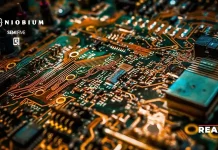Infixion Bioscience, a pre-clinical drug discovery company focused on developing gene-targeted therapeutics for the rare genetic disorder Neurofibromatosis Type 1 (NF1), announced the awarding of its third NIH SBIR Phase 1 grant from the National Institute of Neurological Disorders and Stroke (NINDS). Having received two previous NIH SBIR Phase 1 grants for NF1 research (2020 and 2021), this third NIH grant will enable Infixion to progress its drug discovery efforts targeted at correcting the amount of NF1 protein (called neurofibromin), a critical regulatory protein lacking in people living with NF1.
Also Read: Cellistic and Celyad Oncology Announce GMP Cell Therapy Manufacturing Operations Transaction
NF1 is a rare genetic disorder impacting 1 in 3000 people worldwide, making it more common than Cystic Fibrosis, Duchenne Muscular Dystrophy and Huntington’s Disease combined. NF1 manifestations are quite diverse, including: a) large and invasive nervous system tumors that are disfiguring, painful and impact vital organs, b) smaller skin tumors that can number into the thousands, c) cognitive, learning, and social deficits, d) bone issues such as scoliosis, e) debilitating chronic pain and itch and f) twice the lifetime risk of cancer. Today, there are no treatments that address underlying root causes of NF1 or that provide more than symptomatic relief. Infixion Bioscience was founded and supported by NF1 parents and families to develop game-changing therapeutics to treat and prevent progression of NF1 symptoms by correcting the lack of normal NF1 protein (scientifically known as protein haploinsufficiency), a primary driver of NF1 manifestations.
Infixion Bioscience announces its third NIH SBIR grant to develop treatments for Neurofibromatosis Type 1 (NF1).
Infixion‘s three NIH grants target various aspects and modulators of the NF1 protein life-cycle, providing a multi-pronged approach to its NF1 drug discovery effort. In addition to drug discovery, Infixion is developing important new scientific tools for NF1, including a superior new monoclonal antibody to measure NF1 protein, and specialized Schwann cell lines lacking NF1 protein, thus enabling research collaborations and supporting the NF1 research community. Herb Sarnoff, Infixion’s CEO and NF1 ‘dadvocate’, noted: “We’re proud to have the continued support and confidence of the NIH to help the development of a revolutionary treatment for people living with NF1, and to support NF1 researchers worldwide.”




